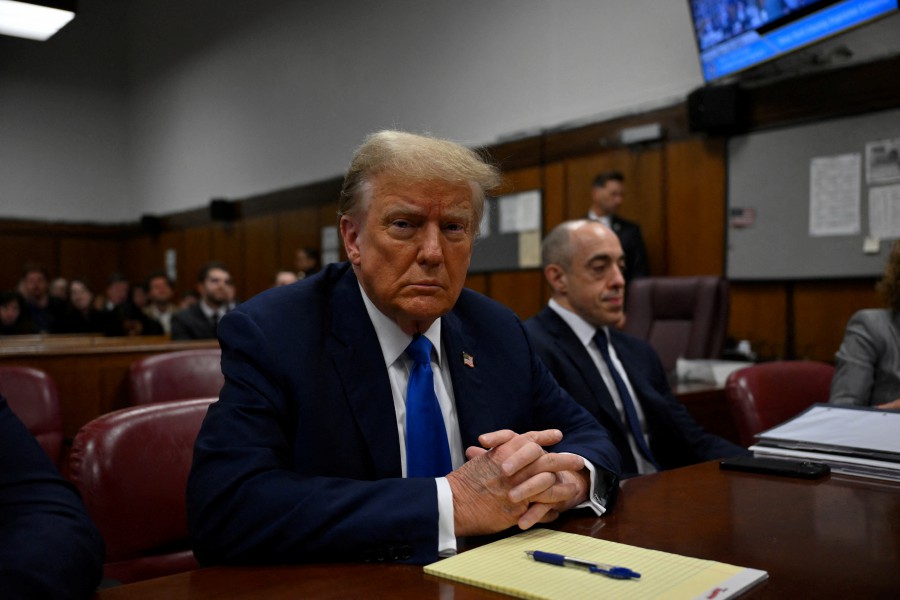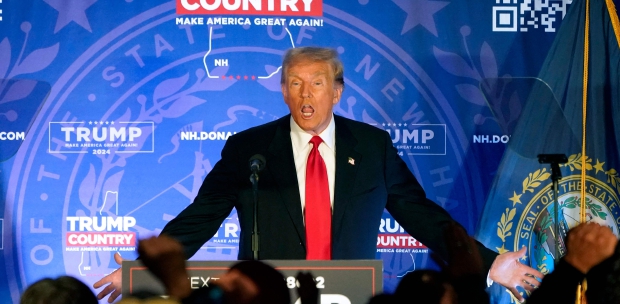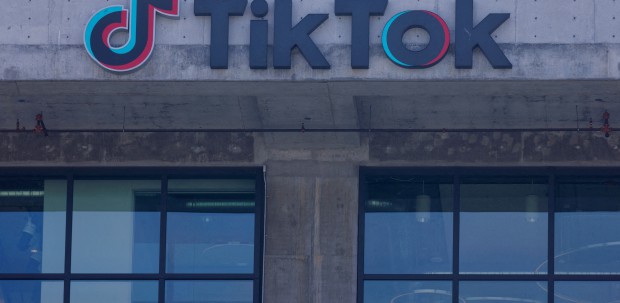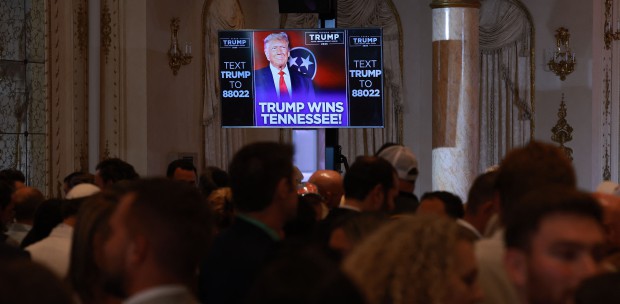GERMANY is waging a charm offensive inside the Republican Party. Japan is lining up its own Trump whisperer. Mexican government officials are talking to Camp Trump. And Australia is busy making laws to help Trump-proof its US defence ties.
Everywhere, US allies are taking steps to defend or advance their interests in the event former President Donald Trump returns to power in the November elections, an even chance based on recent opinion polls in swing states.
They want to avoid the cold slap that Trump's "America First" policies dealt them last time around, which included trade wars, a shakeup of security alliances, an immigration crackdown and the withdrawal from a global climate accord.
Some foreign leaders have contacted Trump directly despite the risk of irking his election rival, Democratic President Joe Biden.
Saudi's crown prince recently phoned Trump while Hungary's prime minister and Poland's president met him in person in recent weeks.
British Foreign Minister David Cameron also held talks with Trump this month at his Florida resort on Ukraine, the Israel-Gaza war, and the future of Nato.
The Trump campaign said he discussed security issues with each of the European leaders, including a proposal by Polish President Andrzej Duda that Nato members spend at least 3 per cent of gross domestic product on defence. Currently, they aim to spend 2 per cent.
Trump adviser Brian Hughes said: "Meetings and calls from world leaders reflect the recognition of what we already know here at home. Joe Biden is weak, and when President Trump is sworn in as the 47th President of the United States, the world will be more secure and America will be more prosperous."
Much of the Trump outreach has been less direct than meetings with the candidate.
Mindful that Trump threatened punitive tariffs on Germany's car industry while president, and now wants to slap a minimum 10 per cent tariff on all imports if returned to office, Germany is using a transatlantic coordinator to ready for Trump 2.0.
Michael Link is leading what Berlin calls "bypass diplomacy", crisscrossing the union, targeting swing states where Germany is a heavy investor.
He had met Republican governors of Oklahoma, Arkansas, Alabama and Indiana, explaining why good trade ties underpin Germany's US presence.
The biggest exporter of US-made cars is BMW, and Germany says it employs 860,000 Americans directly and indirectly.
In Mexico, government officials have been meeting people close to Trump on issues including migration and the trafficking of fentanyl, a synthetic opioid, into the United States, both issues where Mexico could face more pressure under another Trump administration.
The Mexican officials also discussed the North American free trade deal, last rewritten under the Trump presidency in 2020 and up for review in 2026.
And in a sign of how much personal relationships matter under Trump, Mexico's ruling party is considering alternative candidates to appoint as the next foreign minister depending on whether Trump or Biden looks most likely to win.
Japan is preparing to deploy Sunao Takao, a Harvard-educated interpreter who helped former prime minister Shinzo Abe bond with Trump over games of golf.
Another ex-PM, Taro Aso, met Trump in New York on Tuesday. America's closest ally in Asia worries Trump may revive trade protectionism and demand more money for the upkeep of US forces in Japan.
Britain's Labour party, now in opposition but a strong favourite to win elections expected by year-end, may have a steeper hill to climb to reach a good relationship with a Trump administration.
Labour's nominative foreign minister, David Lammy, once wrote in Time magazine that Trump was a "woman-hating, neo-Nazi sociopath". Lammy is now working to build ties with Republicans, said a Labour official.
Australia's US ambassador, Kevin Rudd, is trying to protect a key defence deal from being unwound by Trump.
Rudd has pushed Canberra to act fast on enacting legislation that moves it closer to US arms-control standards and set up a special nuclear-safety body, in the hope it would make the sale harder for Trump to unpick, the source said.
A former South Korean government official, now based in Washington, said the Biden administration was watching foreign governments closely and that Seoul preferred to understand Trump's thinking via lobbying firms in a "stealthy manner".
*The writers are from Reuters





